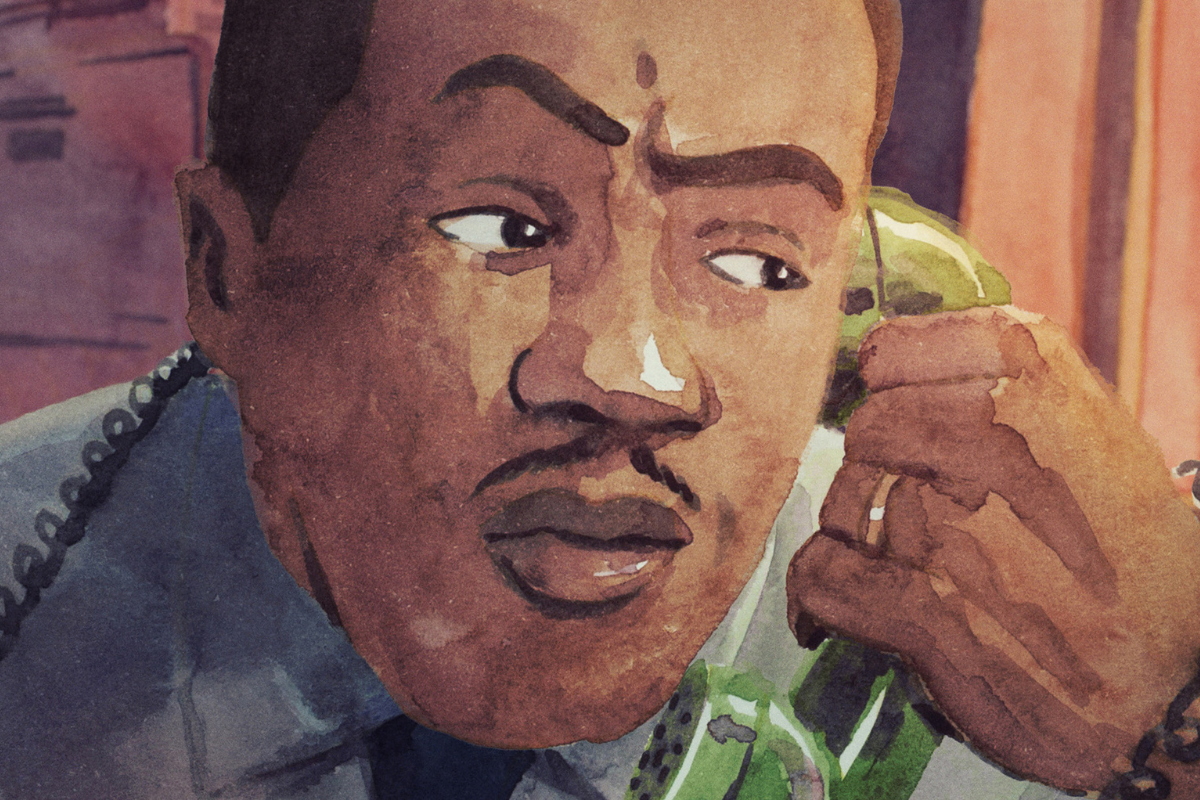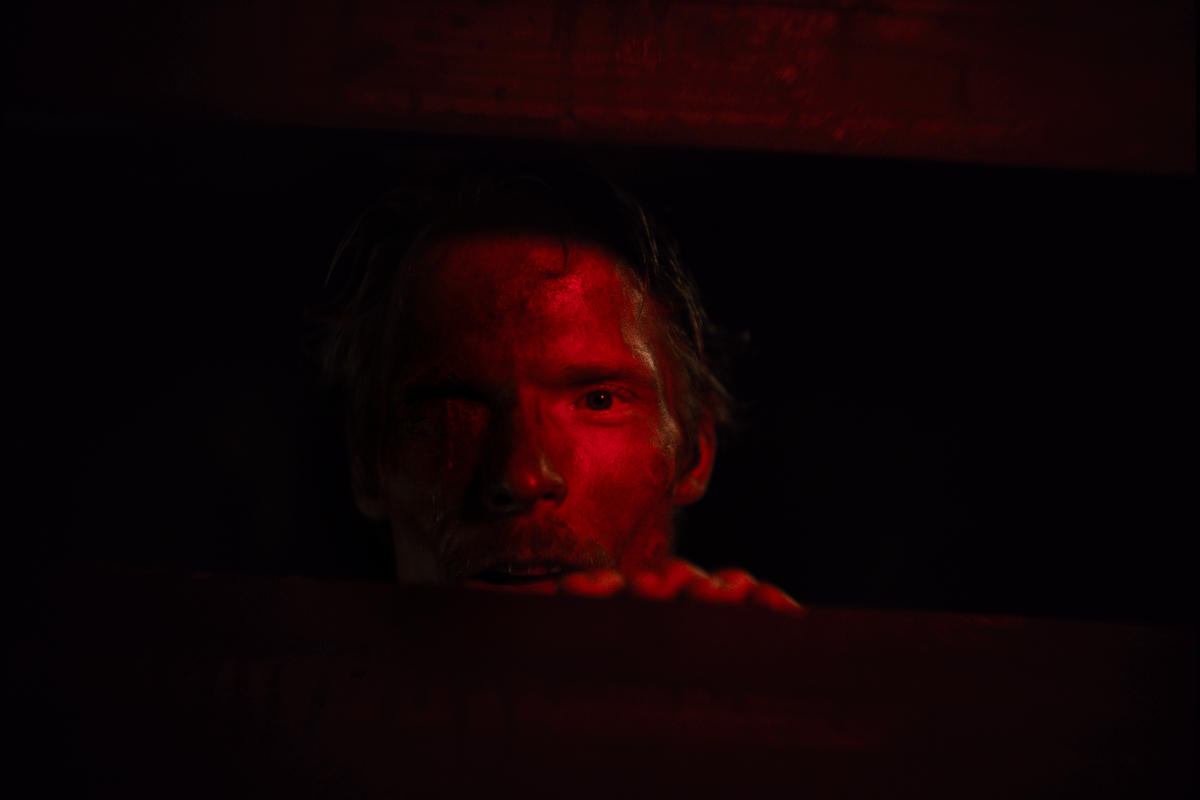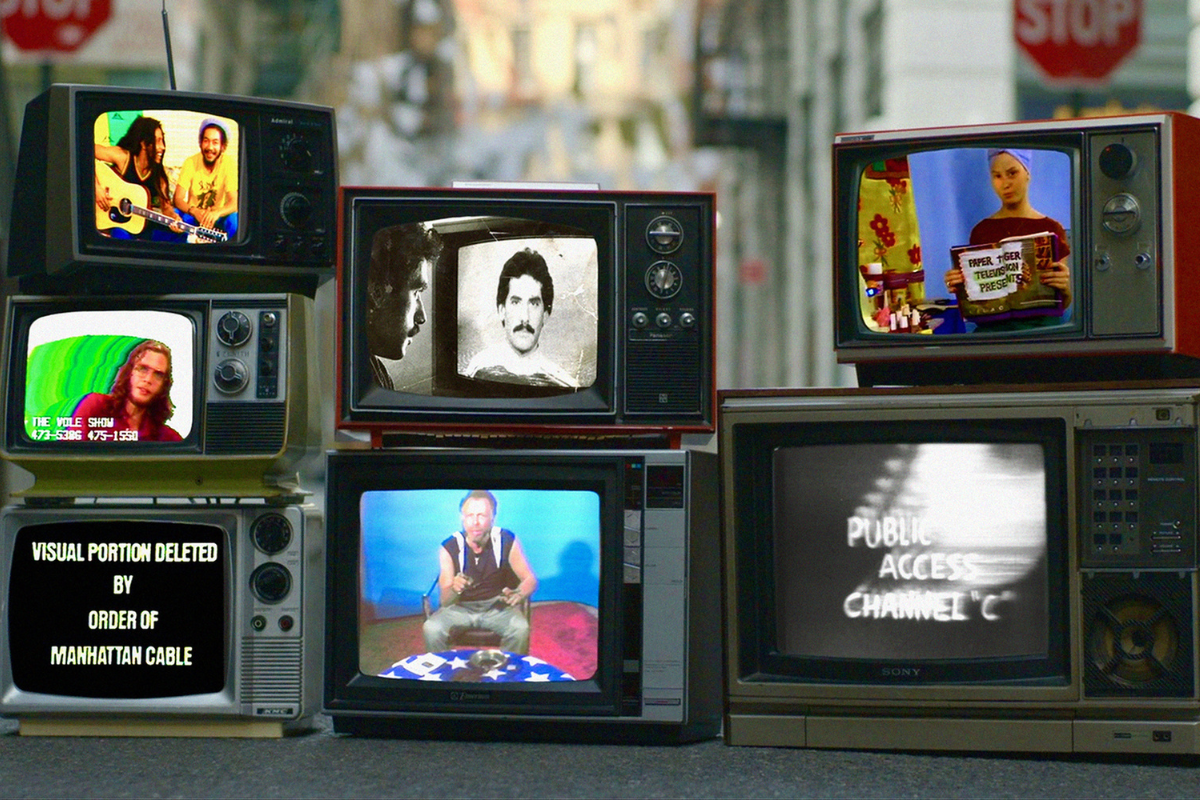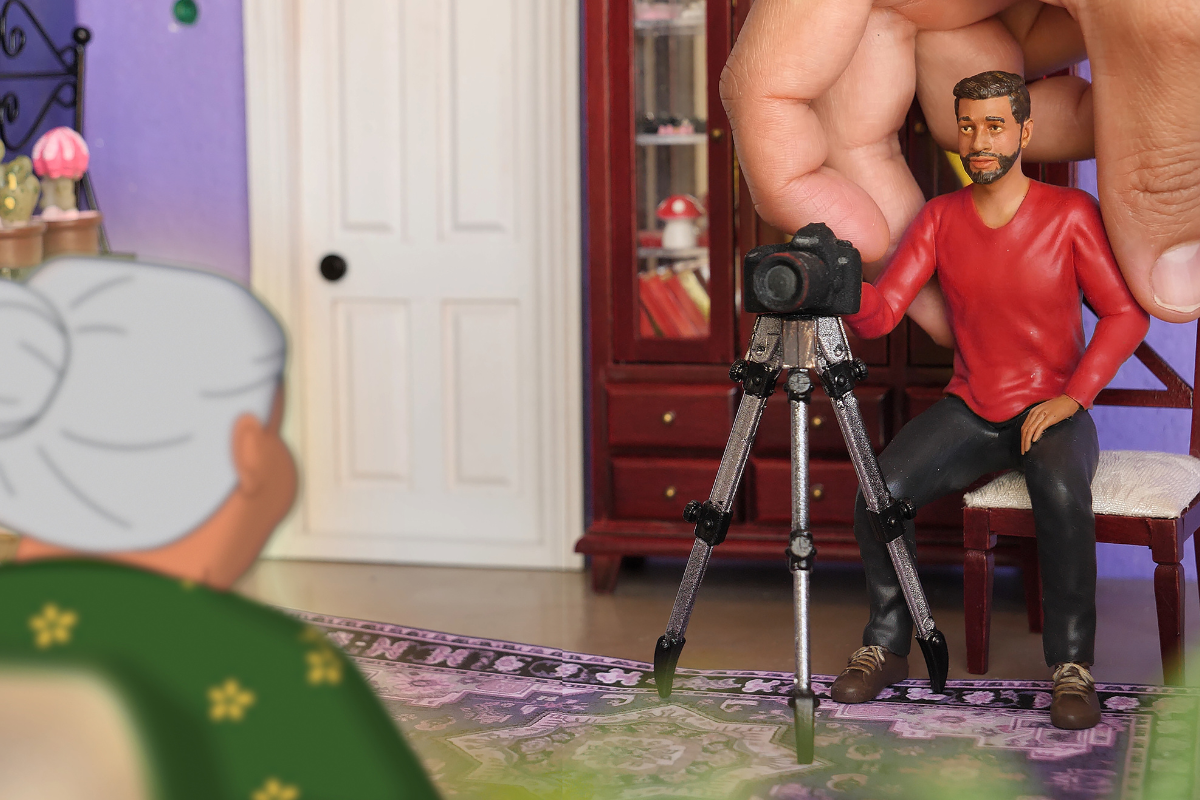The ABCs of Horror: An Interview with Simon Barrett
Script contributor Sonya Alexander speaks with horror filmmaker Simon Barrett about his latest film ‘V/H/S/94’, the influence of horror streaming platforms and how the landscape of horror has changed since he first got his start.
Horror is an evergreen genre that has many subgenres, with those storytelling styles and topics frequently capturing the collective consciousness of the era in which it was made and providing metaphors for the time. For example, Rosemary’s Baby elucidated a certain level of nihilism that took hold of the end of the peace and love 60s decade, a watershed effect of the Vietnam War and numerous assassinations of political and civil rights leaders. It also shone a light on the burgeoning popularity of sadistic cults, which the Manson clan’s litigious deeds would soon shadow.
One of the most popular forms of horror storytelling in recent years has been the found- footage class of film. While many associate box office hit Blair Witch (1999) with being the first found-footage horror flick, in actuality the extremely unsettling Cannibal Holocaust (1980) is the grandad of the genre. The V/H/S series contributed by providing a different structure for the “realistic” portrayal of happenings. One of the fresh voices introduced in that series was Simon Barrett (You’re Next, Séance). The latest entry of this harrowing series, V/H/S/94, premiered at Fantastic Fest in Austin, TX, on September 26, 2021. It’ll be available for your viewing pleasure on October 6, 2021, on Shudder.
Hailing from the Midwest originally, this self-proclaimed introvert’s projects are each unique, executed with a seasoned writer’s depth and a producorial eye. There’s no pigeonholing his style. He frequently collaborates with fellow horror maestro writer/director Adam Wingard (Godzilla vs. Kong, V/H/S), which is a creative relationship that fires on all cylinders.
Since you’ve been working in the horror genre, how have you seen it change?
The changes I’ve seen in the horror genre have been driven by the market. In the early 2000s, when I was first trying to start my career after I wrote the film Dead Birds and managed to sell that script, and I was trying to eek out a living as a studio horror screenwriter, that was an era that was based around selling DVDs. If you were a major distributor, basically a film that was remotely competent and made for under $10 million could be profitable. That completely changed within that decade and changed it in a positive way. During the DVD boom, it was being made as commercial product. After the bottom dropped out of the DVD market, horror got “weird,” which was good for me, since I have an off-kilter sensibility. Less about making films that appeal to all horror fans, more about catering to a certain type of horror fan. There’s no particular “voice” to the genre now, which is good. It’s a weird artistic flourishing in indie horror.
How have streaming platforms like Shudder influenced horror?
I’m still trying to wrap my head around that. Normally I’d say that streaming platforms aren’t good for a genre that traffics in the transgressive. The last thing you want is something controversial, like Cuties. Then you have a network like Shudder that carries Cannibal Holocaust or Bloodsucking Freaks. These types of movies are their brand and they’ve found an audience that embraces it. I worry that in a streaming environment, transgressive art is going to have to struggle to justify itself.
What are your three favorite horror films of all time?
The original Bernard Rose Candyman, the original 1968 Night of the Living Dead. Those are two films I can relentlessly study and they continue to get under my skin. My tendencies have leaned toward comedy-horror for a while and the film I’ve watched over 100 times is Evil Dead 2.
If you could remake a classic horror film, which one would you remake?
I would be extremely disinclined to remake a classic horror film. I’m not particularly excited about doing something like that. In my V/H/S/94 segment, I took inspiration from the Russian/Ukrainian film Viy, which was done in 1967. It revolutionized cinematic language at the time.
That’s a good lead into my next question. What is your segment of V/H/S/94 about?
Mine is called “The Empty Wake.” It’s about a young woman who works at a funeral home, and she’s given the job of officiating a service that’s being held overnight. She’s also being asked to videotape it for the deceased family’s memorial video. Over the course of the night, she has scary experiences.
How does this segment compare to what you did in V/H/S 1 and 2?
My role in the first two V/H/S movies was very different than my role in this one. I was much more involved on the producorial and editorial side, working more closely with our producers Roxanne Benjamin and Brad Miska. I accordingly put together the wrap around segments. That’s a lot of work! This was my first opportunity to be the director of a standalone segment.
What was the budget for the first two films?
The budget for the first V/H/S was around $242,000. V/H/S 2 went up to almost $350,000, mainly because we really wanted a long sound mix for that.
How did You’re Next come about?
My good friend and long-time creative partner Adam Wingard wanted to make a home invasion film. He’s from a small town in Alabama and I’m from one in Missouri, so isolation horror was kind of baked into us. I wanted to make the script a fun experience, not punish people.
How about The Guest?
The success of You’re Next bought us The Guest. That was the biggest budget we’d operated with thus far. That was the first time I felt useless on set because we had so many resources that I wasn’t having to run around in a producer role. [laughs] Both Adam and I think The Guest is the closest we’ve gotten to purely distilling our vision for a project to the screen. Making a film is largely watching your artistic vision be eroded by circumstances of actual filmmaking, budgets, and so on.
How does your writing process differ when you’re writing a project that you know you’re going to direct as opposed to one you’re not directing?
I’m a strange enough screenwriter that it doesn’t differ very much. I should clarify that that’s because I only write scripts for a couple of people to direct, either myself or Adam Wingard…or I’m working on something very specifically with a director in mind who I’m friends with. I’ve never sold a script. It’s just not the way I work, not that I wouldn’t be happy to work that way. That’s just not the direction my career went. When I write for Adam, I know his vision and know creatively what will and won’t annoy him. When I write with him, when we’re literally in the same room, it’s a different process. We’ve developed a creative shorthand.
Can you talk about the current projects you’re working on, Face/Off 2 and Thundercats?
Adam and I are working in Thundercats and Face/Off 2 and they’re going great. People always ask about Face/Off 2, but people should also be really excited about Thundercats…! Adam first started pitching a Thundercats narrative to me on the set of You’re Next. I think it will really surprise people.
What advice would you give a newbie writer for writing their first indie script?
My advice would be to write a great role for an actor. Particularly on the indie filmmaking level, cast is going to be your friend. If you write a role that an actor would like to play, that’s a huge hurdle to getting a film made on an indie level.
Can you talk a bit about Séance?
Séance comes out on Shudder in the next week or so. That was a small, “cozy” slasher. It was my first feature as a director. I made that up in Winnipeg in November/December of 2019.
What has been your most challenging project?
Séance. I learned years worths of lessons during those five weeks of shooting. Winnipeg presented certain logistical challenges. It was also below zero when we were filming outside. A Horrible Way to Die and You’re Next were difficult, but they were collaborative efforts. With Séance, it was me having to figure out how to be responsible for everything. If I slept a couple of hours a night during that shoot, I was happy…! I’m very grateful to Dark Castle and everyone else who let me go off and do my thing.
How do you think the V/H/S films changed or contributed to the found-footage genre?
I think Brad Miska, who came up with this original idea to do these Bloody Disgusting movies as short found-footage films that would feel like found tapes, hit upon two strokes of genius. Just adhering to the found-footage concept, he found a way to make anthology films feel stylistically unified. Secondarily, by making found-footage narratives short, you really get over a huge hurdle of found-footage, which is why someone would keep filming for such a sustained amount of time.
Would you recommend outlining?
I would recommend outlining if you’re writing a film that you want to be entertaining on a blockbuster level. Adam and I have created tons of treatments and outlines for Face/Off 2 that we haven’t shown the producers because we’re working things out to make sure we have a tight story structure. You have to be meticulous when you’re writing for a wider audience.
If you’re writing something that is a bit weird and maybe isn’t for everyone, I don’t think you should outline. You should just start writing and see where the story and characters take you. What they say and where they go. Find the voice of the story and let it find you. I’m writing a story about a certain crime enterprise in the U.S. and that’s how I’m doing it. I’m on page 12, I’m over the main hurdle. Usually, I write my endings first, but I’m not doing that with this one. I’m writing into the abyss and seeing where it goes.
Learn more about the craft and business of screenwriting from our Script University courses!
Sonya Alexander started off her career training to be a talent agent. She eventually realized she was meant to be on the creative end and has been writing ever since. As a freelance writer she’s written screenplays, covered film, television, music and video games and done academic writing. She’s also been a script reader for over twenty years. She's a member of the African American Film Critics Association and currently resides in Los Angeles.







